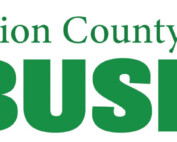Local Government & Social Media
If you’re managing a municipal or public sector social media account, finding content to engage your community can be the biggest hurdle. To avoid adopting a partisan social media presence, gear content toward public service announcements and critical information – such as town halls, council meetings, crime prevention, emergency alerts, weather updates, construction, job openings, events, and activity registration. To serve constituents in a civil and unbiased manner, establish your social media accounts as spaces to find reliable information. When the goal is to spark community pride, the last thing you want is an argument breaking out in the comments. To ensure an engaging but professional online presence, consider the following tips in your branding strategy.
- Transparency
Prioritizing transparency is a critical step in facilitating community engagement. Unlike the average social media user, nonprofit organizations and government entities must act in accordance with a range of state and federal laws. All municipal accounts should clearly state that they are operated by the municipality and, where possible, those accounts should be “verified” by the platform. According to the Pew Research Center, most Americans think social media sites censor political viewpoints. Earn viewers’ trust by maintaining a reputation of transparency and integrity. - Accuracy
The employees who manage social media accounts are essentially online representatives – meaning anything they post, share, pin, tweet, or say in a comment is likely to be considered official communication. Be sure to have a plan in place for responding to negative comments, heated debates, or the spread of misinformation. - Consistency
It’s no secret that consistency is key for any branding venture, so be sure each team member is on the same page regarding social media best practices for each account. One of the best ways to do this is to adopt a formal social media policy with detailed guidelines.
Writing Your Organization’s Social Media Guidelines
These guidelines should cover posting schedules, employee roles, login information, password maintenance, a comment policy, a sharing and/or linking policy, and information regarding copyright and trademark limitations. A municipal social media policy should also address its employees’ personal use of social media – team members should understand any and all limitations on posting confidential information or using personal accounts in a way that suggests they are speaking on behalf of the organization. Before drafting your own policy, be transparent with your team regarding the need for guidelines and explore the New Jersey League of Municipalities’ examples of guidelines implemented in municipalities across the state.









